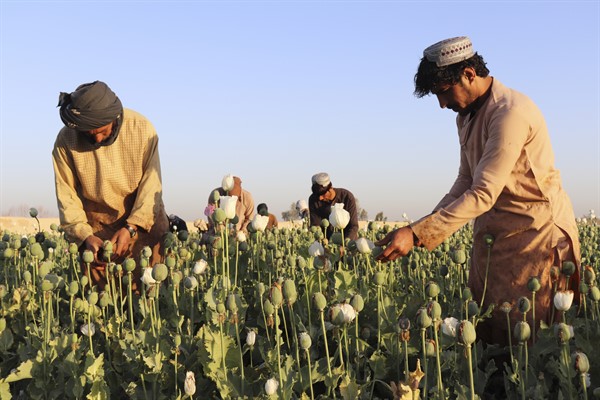In April, the Taliban announced a blanket ban on drug production and use in Afghanistan. There are a number of potential reasons for the move, which would cause considerable financial pain to many of the group’s core constituencies, as well as to the Taliban itself. But the timing of the announcement suggests that the ban will not go into effect immediately, and even if the Taliban are serious about implementing it, they will face obstacles in doing so.
One reason for announcing the ban could be to portray the Taliban as being in a position to control the lucrative opium trade, estimated by the U.N. to be worth up to $2.7 billion annually. The reality is more complicated. It’s true that the Taliban no longer have to compete with officials from the ousted government of Afghanistan or the various militias aligned with them over drug production and smuggling. But sources among opium smugglers—and within the Taliban—confide that this has not allowed the Taliban to establish complete control over the trade.
Since August 2021, the Taliban have reached understandings over taxation and other forms of payoffs with the main gangs that are the key players in the drug trade. According to the smugglers themselves, they are taxed at an official rate of 10 percent, which goes to the Taliban. On top of this, however, are the “extras” that many Taliban commanders charge for transport or escort services—money these commanders then keep for themselves.

